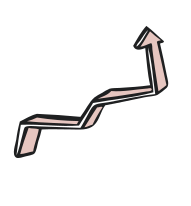







Do the Stars Align for Libra?
Facebook’s new payments system has hit the headlines, but what does it mean for the average Kiwi, and for other currencies? Victoria Harris, of Pie Funds, investigates. After months of speculation, Facebook has revealed it will launch a cryptocurrency, or digital money system, called Libra next year.
The new Facebook ‘money’ will be a global system. Libra aims to offer users fast, simple, secure, and accessible methods of peer-to-peer payments, money transfers, and payments to retailers.
Over time, Facebook’s goal is for Libra to become the world’s first mainstream cryptocurrency. The developer site says it’s to be “a simple global currency and financial infrastructure that empowers billions of people”.
Libra’s targeting the 80 per cent of all global transactions that are still cash-based. It’s also targeting the 1.7 billion people – 31 per cent of the world’s population – that have no access to financial institutions.
It’s also aimed at people who do have access to banks, but want to avoid the high cost and time involved in transferring money across borders. On average, it takes about four days and costs 7 per cent of the total amount to transfer money through companies like Western Union.
This initiative, if it’s successful, could be very disruptive to the world’s banking systems.
Another Bitcoin?
Libra is a cryptocurrency like Bitcoin, but it doesn’t have a ton in common with this famous cryptocurrency. However, they’re both virtual currencies that use computer cryptography for security.
Bitcoin derives its value from being hard to get, and because it has large movements in value. Despite years of hype about a magical future made possible by blockchain,Bitcoin’s still basically a niche currency, not widely used for everyday transactions or even peer-to-peer payments.
Libra payments will be written into a new blockchain. Blockchain’s the record-keeping technology that sits behind Bitcoin, like a digital ledger. There’ll be no ‘mining’ for Libra – you’ll basically just buy it in order to make transactions.
The value of Libra will be backed by a reserve of real assets like bank deposits and short-term government securities. It will be managed by the independent Libra Association Partners, not Facebook itself.
Right now, the partnership includes a diverse range of global heavyweights: Mastercard, Visa, Uber, Lyft, Spotify, eBay, and PayPal. In theory, this should stop Libra facing Bitcoin’s wild price fluctuations.
Facebook’s mission is that this will be a new global currency standard (like the US dollar) but more stable and easier to exchange than Bitcoin. The list of early partners is impressive and does give me some optimism about the project.
Another major benefit is that Libra will offer more value to the core Facebook platform. It will do this by reducing the risk of users simply leaving the big blue social app, and by enhancing the value of WhatsApp, Instagram, and Messenger.
Libra’s crucial in Facebook’s ambition to monetise its 2.7 billion users.
Another Alipay?
China started the global online payment revolution with mobile payment platforms such as Alibaba’s Alipay and Tencentbacked WeChat Pay, which processed nearly US$13 trillion last year.
Within WeChat (dubbed the ‘superapp’), users can message, transact, and pay bills, all without leaving the app. This creates a very stable and recurring user base. Libra could make e-commerce transactions significantly easier. Facebook may become the ‘superapp’ for Western countries.
However, the Libra system poses even greater risks to central banks globally, since it’s designed as an alternative to the existing banking system and local currencies. This differs from Alipay and WeChat Pay, which are still tied to people’s bank accounts.
Mobile money
Libra has been met with a lot of criticism. Some of the backlash is over concerns about Facebook’s disregard of privacy, the security of user data, and its monopoly. Others fear a disruption of financial services.
Facebook’s created a strategy to partner with many other leading businesses and to run Libra through an independent consortium. This hopefully gives it greater credibility and should help Facebook through the regulations.
Libra wants to make it easy to secure your financial assets on your mobile device. Facebook believes moving money around should be as easy and cost-effective as sending a text.
However, it seems unlikely Libra would make the financial system less stable, or completely replace national currencies, reducing the effectiveness of central banks’ monetary policy.
It’s unlikely people will use Libra to conduct everyday domestic transactions. They’re unlikely to want to swap much of their (in most cases) riskless domestic currency for a cryptocurrency that carries some degree of risk, without being compensated for it. However, if Libra did start to be adopted widely, this could create problems for central banks, who would start to lose control of the financial system. Central banks are already starting to think about ways to give individuals cheap and fast peer-to-peer transactions while maintaining control.
Libra’s launch could just accelerate this initiative. Either way, we’re rapidly moving to a cash-less society. Libra has the potential to shake up the world’s financial system and reshape billions of people’s payment habits. But the impact may take years to emerge.
Unlike many Chinese financial technology advances, which were fast-tracked by officials, this global project must clear huge regulatory hurdles and obstacles.
Libra’s likely to be the first truly global digital currency. The key beneficiaries would be developing markets, which would be positive for Facebook – and the world – over time. Let’s just hope Libra provides similar attributes to its namesake star sign: balance, harmony and peace.


